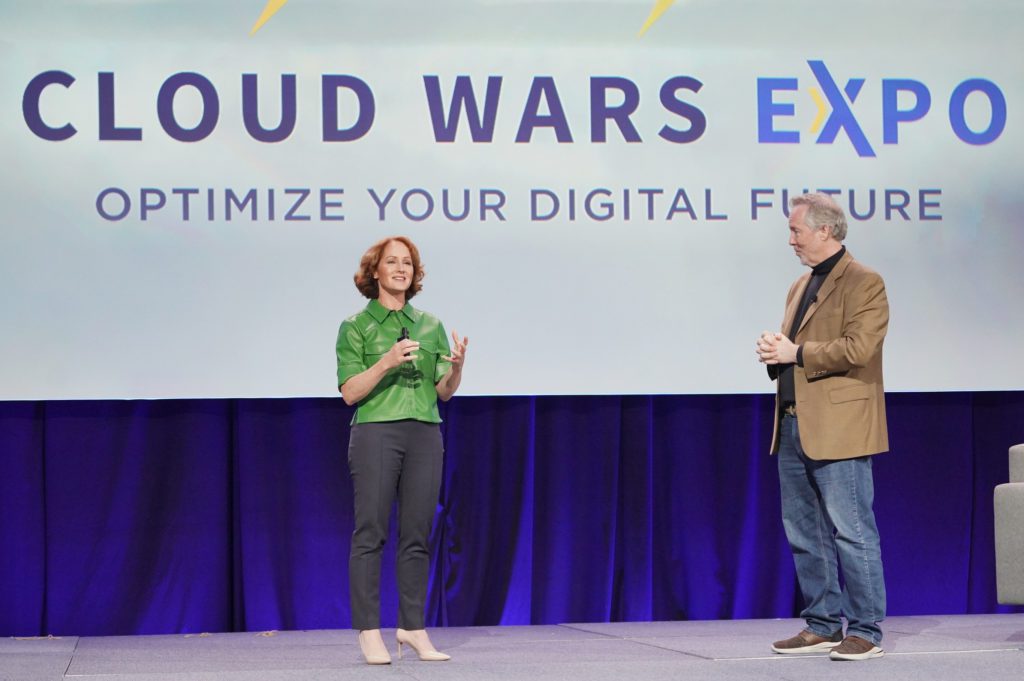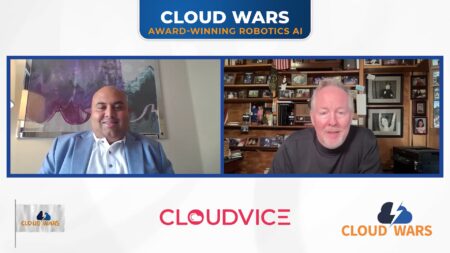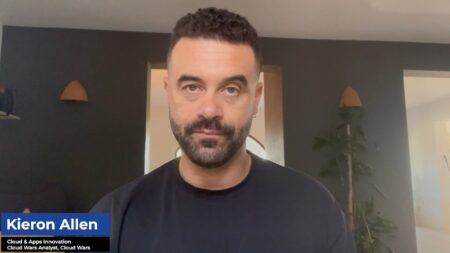
If you harbor any doubts about how modern cloud solutions have become inextricably fused with business strategy and operations, consider the perspective of SAP exec Julia White who recently told me that sustainability represents both “the biggest challenge and the biggest economic opportunity of our time.”
In her big-vision, high-energy keynote at Cloud Wars Expo, White described how sustainability has moved from being an isolated special-project skunkworks to a top-priority issue for CEOs and boards of directors. And more business leaders are discovering that the only way to truly address sustainability is with modern cloud-based applications that enable them to analyze sustainability data in close combination with traditional financial and operational data.
White, who joined SAP just over a year ago as Chief Marketing and Solutions Officer, said that while every CEO she speaks with is making sustainability an absolute top priority, about 70% of CEOs are unsure of how to gather the appropriate data and begin generating specific metrics that drive behavior and focus the minds of people throughout a company and across its stakeholders.
All of which, she said, plays ideally into SAP’s hand.
“SAP has been managing and measuring all kinds of corporate assets for a long time,” she said during her Cloud Wars Expo keynote. As a result, SAP has not only a deep and rich understanding of how various industries work, but also the data that illuminate what’s real, what’s working, what needs to change, and how all the various pieces interact.
The SAP Cloud for Sustainable Enterprises promises to:
- “Run automated sustainability reporting, integrated in your business processes”;
- “Achieve zero emissions on the corporate and product level”;
- “Reduce to zero waste by engaging in circular business models”; and
- “Drive ethical business across employees, suppliers, and communities.”
And to orchestrate and unify all of those moving pieces and vast volumes of data, the SAP Cloud for Sustainable Enterprises has been designed to work seamlessly with S/4HANA Cloud ERP and with SAP’s supply-chain solutions, all of which are enriched by SAP’s large and growing ecosystem of partners.
That end-to-end approach opens the door for White and SAP to position the sustainability initiatives of its customers as potentially “the greatest economic opportunity of our time.”
For a more detailed exploration of White’s keynote, please see this excellent analysis
by my colleague Tom Smith:
Cloud, ERP, Sustainability, and Supply Chains: SAP Exec Julia White’s POV.
On a broader scale, I find it exciting to hear companies across the Cloud Wars Top 10 expanding and lifting up their own perspectives of how they can help customers. At Cloud Wars Expo, we heard White describe how SAP solutions can help businesses face up to and overcome “the biggest challenge of our time.”
In the same vein, Oracle Industries executive vice-president Mike Sicilia described his company’s ambitious intentions to overhaul the healthcare industry as “a moral obligation.”
Beginning July 20, you can start seeing our fantastic Cloud Wars Expo content — including the keynotes from SAP’s White and Oracle’s Sicilia — by registering here for your
Cloud Wars Expo On-Demand Pass.
The perspectives offered by White and Sicilia are signs of the further maturation of the cloud industry away from an insular and bubble-limited obsession with four-letter acronyms ending in “aaS” to a grown-up business where customer requirements and opportunities take precedence over all else.
Hey, SaaS and IaaS are just peachy in their own context — but as a large-scale business, I think most people find overcoming “the biggest challenge of our time” and living up to a “moral obligation” a whole lot more appealing and interesting.








